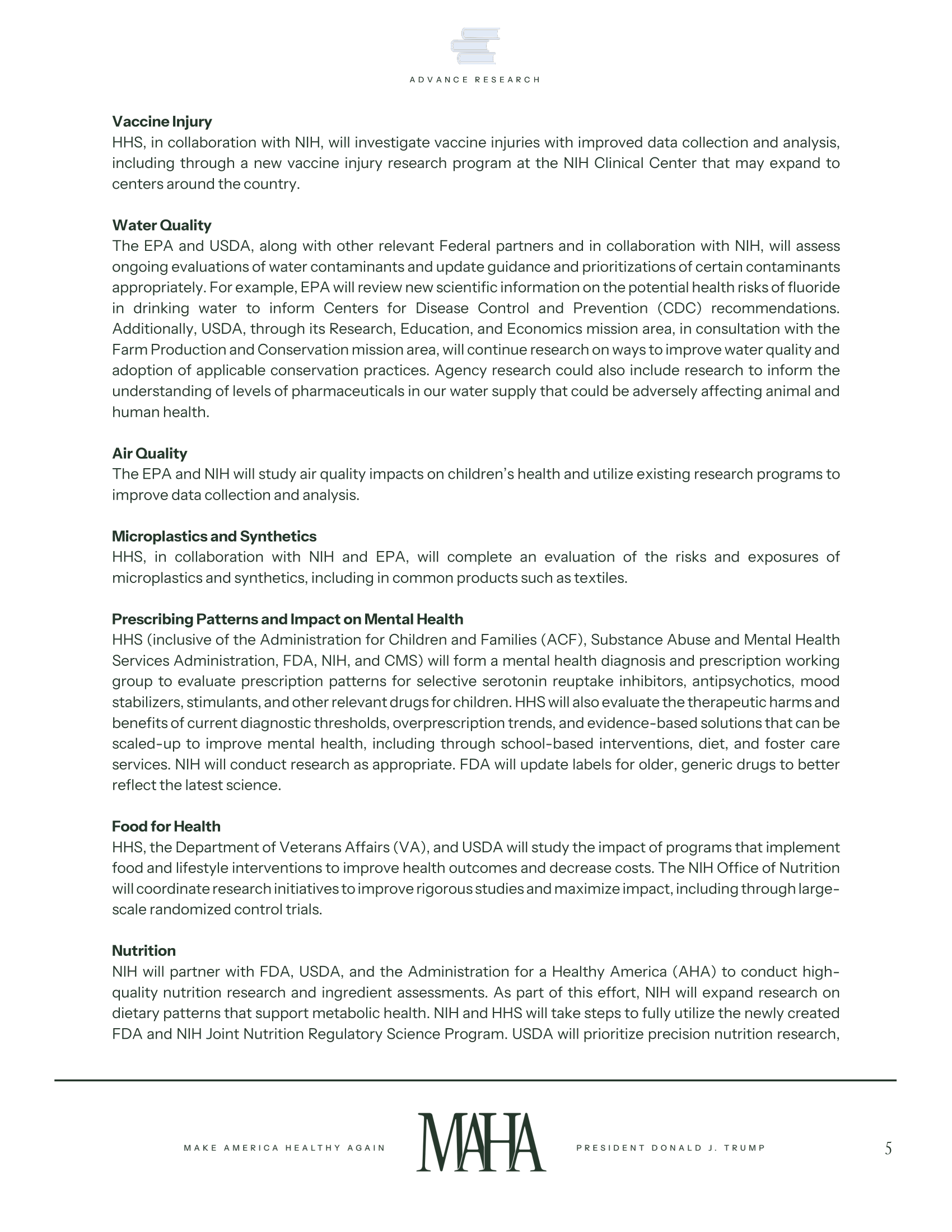
ADVANCE RESEARCH
Vaccine Injury
HHS, in collaboration with NIH, will investigate vaccine injuries with improved data collection and analysis, including through a new vaccine injury research program at the NIH Clinical Center that may expand to centers around the country.
Water Quality
The EPA and USDA, along with other relevant Federal partners and in collaboration with NIH, will assess ongoing evaluations of water contaminants and update guidance and prioritizations of certain contaminants appropriately. For example, EPA will review new scientific information on the potential health risks of fluoride in drinking water to inform Centers for Disease Control and Prevention (CDC) recommendations. Additionally, USDA, through its Research, Education, and Economics mission area, in consultation with the Farm Production and Conservation mission area, will continue research on ways to improve water quality and adoption of applicable conservation practices. Agency research could also include research to inform the understanding of levels of pharmaceuticals in our water supply that could be adversely affecting animal and human health.
Air Quality
The EPA and NIH will study air quality impacts on children’s health and utilize existing research programs to improve data collection and analysis.
Microplastics and Synthetics
HHS, in collaboration with NIH and EPA, will complete an evaluation of the risks and exposures of microplastics and synthetics, including in common products such as textiles.
Prescribing Patterns and Impact on Mental Health
HHS (inclusive of the Administration for Children and Families (ACF), Substance Abuse and Mental Health Services Administration, FDA, NIH, and CMS) will form a mental health diagnosis and prescription working group to evaluate prescription patterns for selective serotonin reuptake inhibitors, antipsychotics, mood stabilizers, stimulants, and other relevant drugs for children. HHS will also evaluate the therapeutic harms and benefits of current diagnostic thresholds, overprescription trends, and evidence-based solutions that can be scaled-up to improve mental health, including through school-based interventions, diet, and foster care services. NIH will conduct research as appropriate. FDA will update labels for older, generic drugs to better reflect the latest science.
Food for Health
HHS, the Department of Veterans Affairs (VA), and USDA will study the impact of programs that implement food and lifestyle interventions to improve health outcomes and decrease costs. The NIH Office of Nutrition will coordinate research initiatives to improve rigorous studies and maximize impact, including through large- scale randomized control trials.
Nutrition
NIH will partner with FDA, USDA, and the Administration for a Healthy America (AHA) to conduct high- quality nutrition research and ingredient assessments. As part of this effort, NIH will expand research on dietary patterns that support metabolic health. NIH and HHS will take steps to fully utilize the newly created FDA and NIH Joint Nutrition Regulatory Science Program. USDA will prioritize precision nutrition research,
MAKE AMERICA HEALTHY AGAIN
MAHA
PRESIDENT DONALD J. TRUMP
5





